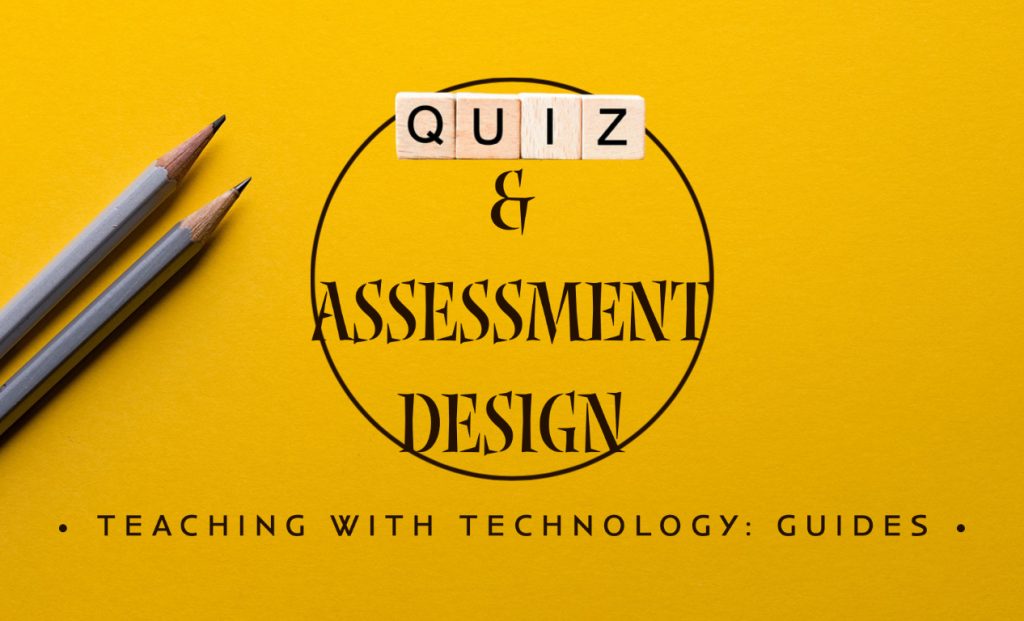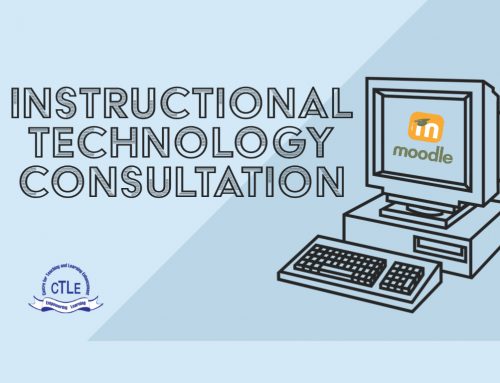Project Description
Four things to consider with automated quizzes and assessment design

By Christopher Fulton, Centre for Teaching and Learning Enhancement
The end of the semester is approaching, and colleagues may be preparing to assess student learning. In this blog post, I would like to highlight recognized aspects of assessment design that might be relevant to your assessment process. The sources of these tips are from experienced educators and the related links and main sources are in the text below and section labeled resources.
- Design for academic integrity.
- Communicate frequently the importance of academic integrity and university standards.
- Ensure online assessments are authentic, current, and relevant. Examples of concept test questions might be helpful.
- Use question banks in Moodle to create several versions of a quiz.
- For students who are off-campus, consider using Zoom to proctor exams. Remind students that a video proctored exam helps ensure appropriate behaviors and fairness during exams.
- Choose an appropriate Moodle assessment tool.
- Identify tools for your purpose: assignment, forum, peer assessment, or a quiz, of which there are several kinds. An “assignment” is not automatically graded but the originality of essays can be checked with Veriguide. If feedback from peers is constructive, use a “forum” or “peer assessment,” both of which might include audio comments.
- To save time, consider writing quiz questions in Word, and importing those into Moodle in the Aiken or GIFT formats.
- Depending on the design of a quiz in Moodle, consider shuffling quiz questions and changing the navigation method to sequential so that students cannot skip ahead or back.
- Design assessment questions that align with the purpose of an assessment.
- Is the purpose of an assessment to evaluate individuals understanding of concepts, or rather, to give feedback for learning?
- Personalized assessments: if a learner can choose one case-study from several, consider including links to relative PDFs or videos.
- Provide activities to de-stress the assessment process.
- Involve students in the design of assessment questions.
- Conduct practice tests to help prepare students to take online quizzes and assessments.
- Design assessments that allow for choice, e.g., in the choice of a case-study or essay question, perhaps the weight of an assessment, or even in the medium for a response, e.g., written text or an audio recording.
Do let us know if you have any additional tips for assessment of learning. We would welcome proposals for blog posts, which can be submitted by UM colleagues by email at ctle@um.edu.mo. In addition, CTLE staff are available by appointment to help develop and design course assessments.
Resources
Carnegie Mellon University. 2022. Promoting Academic Integrity. Eberly Center: teaching Excellence & Educational Innovation. https://www.cmu.edu/teaching/online/assessinglearning/remoteassessment/academicintegrity/promoting.html
Dublin City University. 2021. Assessment Design to Promote Academic Integrity. Teaching Enhancement Unit. https://www.dcu.ie/teu/assessment-design
University of Macau. 2020. Student Disciplinary & Academic Honesty. Graduate School. https://grs.um.edu.mo/index.php/current-students/student-disciplinary-academic-honesty/




